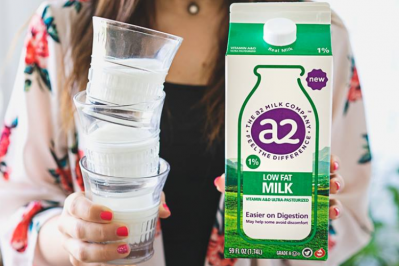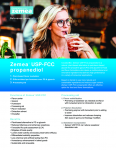Nonprofit public health group requests FTC to investigate alleged deceptive advertising of sucralose

Tate & Lyle – which markets sucralose under the brand name Splenda - claims that the sweetener is not recognized by the body as a carbohydrate and therefore is not metabolized by the body, and therefore is zero calories. According to the company, the majority of sucralose consume is excreted by the body, while the small amount that is absorbed is rapidly eliminated in urine as sucralose.
However, USTKR is arguing that emerging evidence suggests that sucralose may bioaccumulate in the human body based on a 2018 study published in the Journal of Toxicology and Environmental Health that found sucralose metabolizes and bio accumulates in rat adipose tissue, contrary to previous studies.
To explain why previous studies did not find the accumulation of sucralose metabolites, researchers referenced the analysis method used in the past: “The historical metabolic studies apparently failed to detect these metabolites in part because investigators used a methanol fraction from feces for analysis along with thin layer chromatography and a low-resolution linear radioactivity.”
In a letter to the FTC dated November 19, USRTK co-founder and co-director Gary Ruskin said: "We request that the Commission investigate whether it is deceptive within the meaning of the FTC Act for companies or their trade groups to claim, in advertising, marketing and promotions, that sucralose neither metabolizes nor bioaccumulates."
FDA on sucralose:
FDA approved sucralose for use in 15 food categories in 1998 and for use as a general purpose sweetener for foods in 1999 , under certain conditions of use.
Sucralose has been extensively studied and more than 110 safety studies were reviewed by FDA in approving the use of sucralose as a general purpose sweetener for food.
Primary study is 'deeply flawed'
The Calorie Control Council (CCC), an international association representing the low- and reduced-calorie food and beverage industry, said in a statement to FoodNavigator-USA:
"The primary study relied upon in this letter is deeply flawed and scientifically unreliable for the conclusions used in the USRTK letter. Beyond the scientific flaws in the study design, the amount of sucralose used in this study was excessive and equivalent in sweetness to consuming more than 800 teaspoons of sugar per day every day for an average adult (150 pound person)."
A full formal statement from the CCC can be found here.
What needs to be proven
USRTK is claiming that marketing and advertising of sucralose may be in violation under Section 5 of the Federal Trade Commission Act, which determines an advertisement to be deceptive through a three-pronged approach: “First, there must be a representation, omission or practice that is likely to mislead the consumer. Second, we examine the practice from the perspective of a consumer acting reasonably in the circumstances. If the representation or practice affects or is directed primarily to a particular group, the Commission examines reasonableness from the perspective of that group. Third, the representation, omission, or practice must be a "material" one.
“The basic question is whether the act or practice is likely to affect the consumer’s conduct or decision with regard to a product or service,” FTC’s policy states.
"The International Food Information Council Foundation states in its advertising and marketing materials that sucralose does not metabolize or bioaccumulate. However, new scientific evidence in a rat model, as well as some older evidence, appears to contradict those representations," wrote Ruskin.
Does bioaccumulation matter?
While the USRTK cited emerging evidence that sucralose does accumulate in rats' adipose tissue, the public health group did acknowledge that “the implications for the human health risks of sucralose are unknown. If sucralose metabolizes on humans similarly as in rats, we do now the hazard potential or human health risk of the newly discovered acetylated forms of sucralose.
“The point is that misrepresentation to consumers about whether sucralose metabolizes or bioaccumulates could lead to consumer detriment, by increasing consumer acceptance and consumption of a product that may pose human health risks,” Ruskin added.
FTC has not yet stated whether it will begin an investigation into the possible deception of sucralose marketing and advertising.
What is sucralose?
Sucralose is a commonly used artificial sweetener used by major beverage companies such as Coca Cola to sweeten some of its diet soft drinks (e.g. Diet Coke with Splenda, Powerade Zero, Diet Pepsi with Splenda, Diet Mountain Dew, Lipton Diet Iced Tea, etc.).
According to Tate & Lyle, sucralose is produced via a patented process that replaces three hydrogen-oxygen groups on the sugar molecule with three chlorine atoms, resulting in a sweetener that is approximately 600 times sweeter than sugar that can used to partially or fully replace nutritive sweeteners.
Sucralose has achieved wide adoption in the food and beverage industry, and is used in the formulation of approximately 5,000 food and beverage products. Public health organizations such as the American Heart Association (AHA) have concluded that when used carefully, non-nutritive sweeteners such as sucralose may aid in reducing total energy intake and assist with weight loss/control, while providing beneficial effects on related metabolic parameters
When contacted for comment, Tate & Lyle told FoodNavigator-USA: “We are currently reviewing the letter and have no comment for the time being.”






















